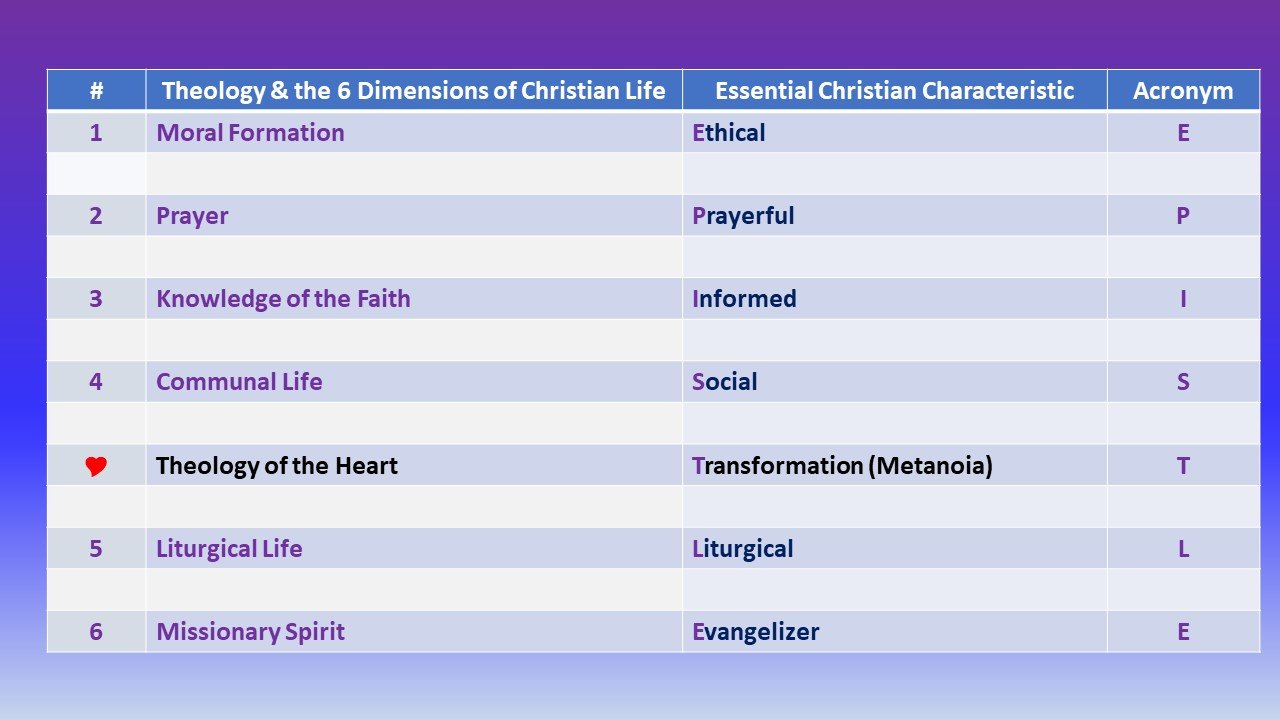Catholic Adult Literacy
Essential for a Mature Faith

On February 23, 2012, then Pope Emeritus Benedict XVI spoke to the priests in Rome that truly pinpointed the need for adult faith.
An Adult Faith Based on Magisterial Literacy
Pope Benedict said:
“One great problem facing the Church today is the lack of knowledge of the faith, ‘religious illiteracy’ . . . With such illiteracy we cannot grow. …
Therefore we must reappropriate the contents of the faith, not as a packet of dogmas and commandments, but as a unique reality revealed in all its profoundness and beauty.
We must do everything possible for catechetical renewal in order for the faith to be known, God to be known, Christ to be known, the truth to be known, and for unity in the truth to grow.
But not a ‘childhood of faith.’
Many adults have never gone beyond the first catechesis, meaning that ‘they cannot – as adults, with competence and conviction – explain and elucidate the philosophy of the faith, its great wisdom and rationality’ to illuminate the minds of others.
To do this, they need an ‘adult faith.’
This does not mean, as has been understood in recent decades, a faith detached from the Magisterium of the Church.
When we abandon the Magisterium, the result is dependency “on the opinions of the world, on the dictatorship of the communications media.”
By contrast, true emancipation consists in freeing ourselves of these opinions, the freedom of the children of God.
Pray for a Truly Adult Faith
We must pray to the Lord intensely that He may help us emancipate ourselves in this sense, to be free in this sense, with a truly adult faith … capable of helping others achieve true perfection … in communion with Christ.
An Adult Framework

“Our Hearts were Burning Within Us”
A Pastoral Plan for an Adult Faith
The six dimensions of adult faith form the structure of the pastoral plan the U.S. Conference for Catholic Bishops put forward in 1999. This plan is metaphorically expressed in the declaration, “Our Hearts were burning within us.”
It is a heartfelt expression of the spirit of the two disciples who journeyed with an unknown traveler, the Risen Lord, on the Road to Emmaus.
The six dimensions express in catechetical form the lived experience of those who may likewise encounter Christ in their hearts. The summaries of the eleven theological topics help us to approach the reality of faith in its profoundness and beauty.
Below are tables which show the correspondences between the structure of the pastoral plan and the magisterial summaries.
The Six Dimensions for an Adult Faith
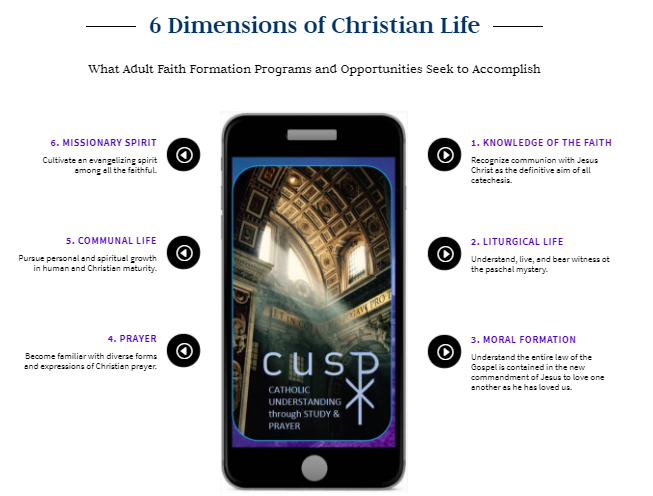
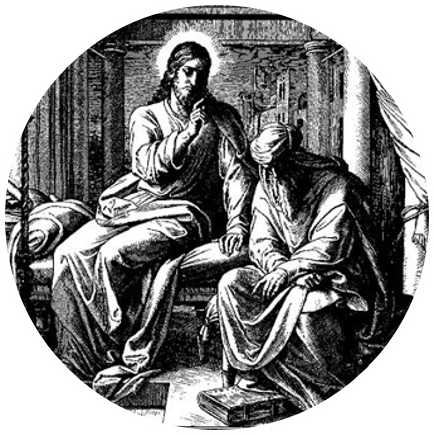
1. Knowledge of the Faith
INFORMED
Scripture and tradition form the core content of all adult catechesis, for the Church has always considered them the supreme rule of faith.
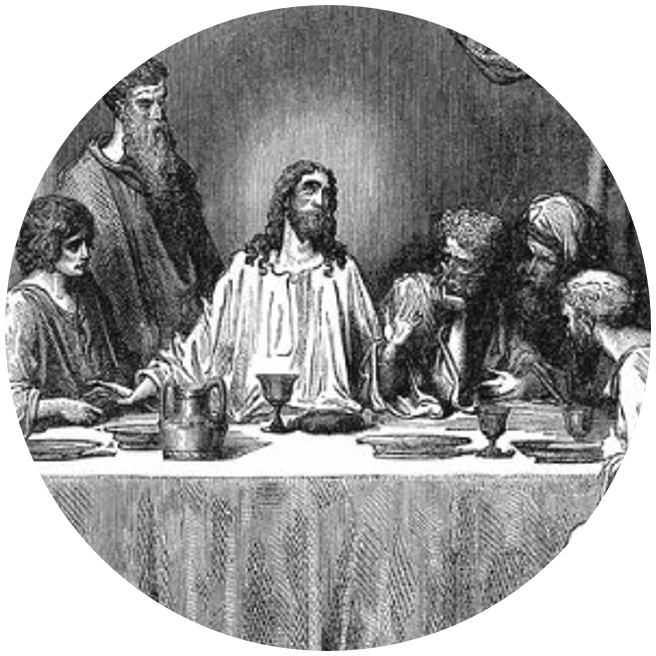
2. Liturgical Life
LITURGICAL
Understand, live, and bear witness to the paschal mystery, celebrated and communicated through the Church’s sacramental life.
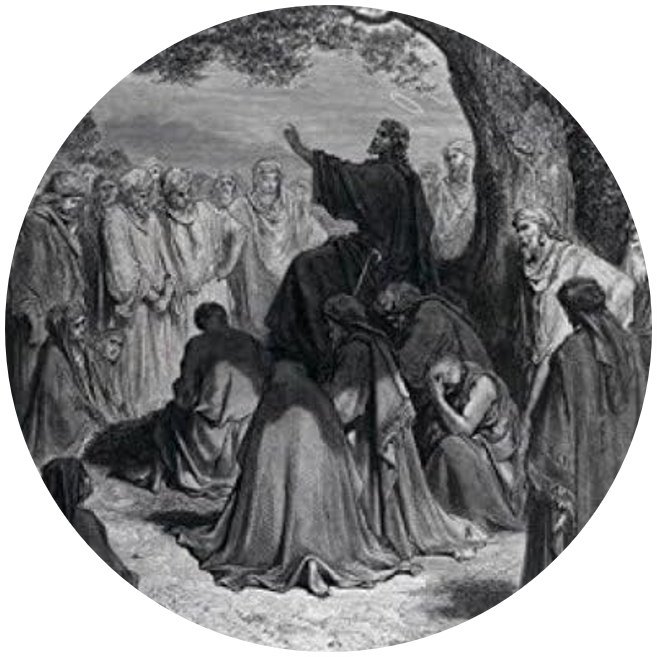
3, Moral Formation
ETHICAL
Understand how the entire Law of the Gospel is contained in the new commandment of Jesus, to love one another as he has loved us, and promote each disciple’s formation in the life of the risen Christ.

4. Prayer
PRAYERFUL
Become familiar with the diverse forms and expressions of Christian prayer, with particular attention to the Our Father, the prayer that is the model of all Christian prayer.
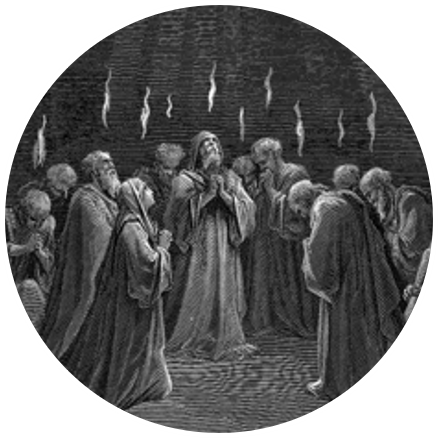
5. Communal Life
SOCIAL
Pursue personal and spiritual growth in human and Christian maturity.
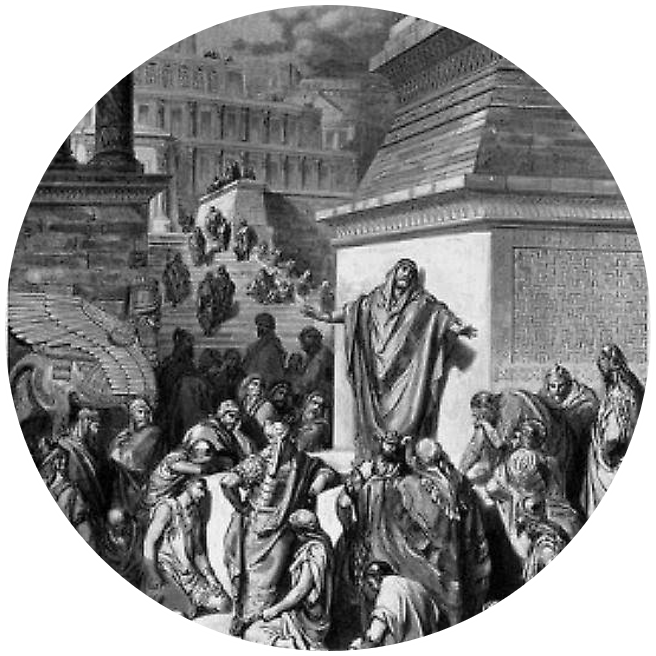
6. Missionary Spirit
EVANGELICAL
Cultivate an evangelizing spirit among all the faithful as an integral element of their baptismal calling, of the Church’s nature and mission, and of a Catholic way of life.
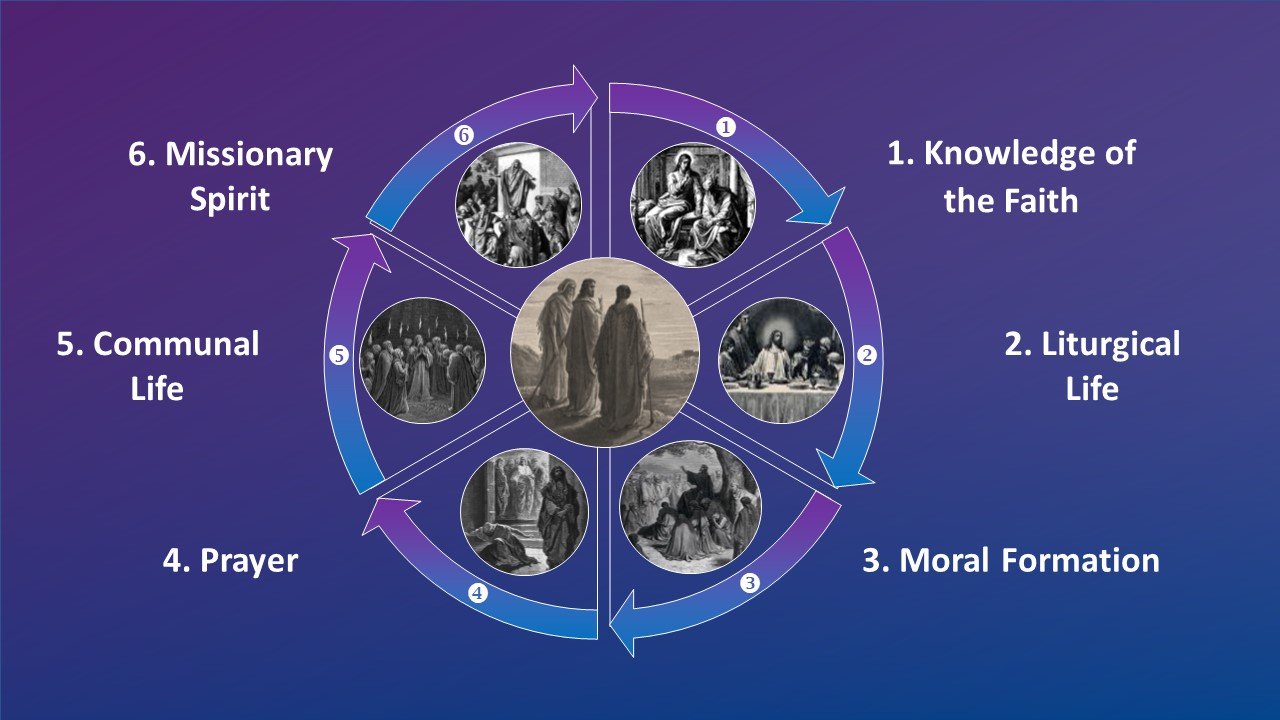
The Six Dimensions of the pastoral plan for an adult faith find the profoundness of Catholic teaching in the eleven volumes of the Magisterium Summary Series.
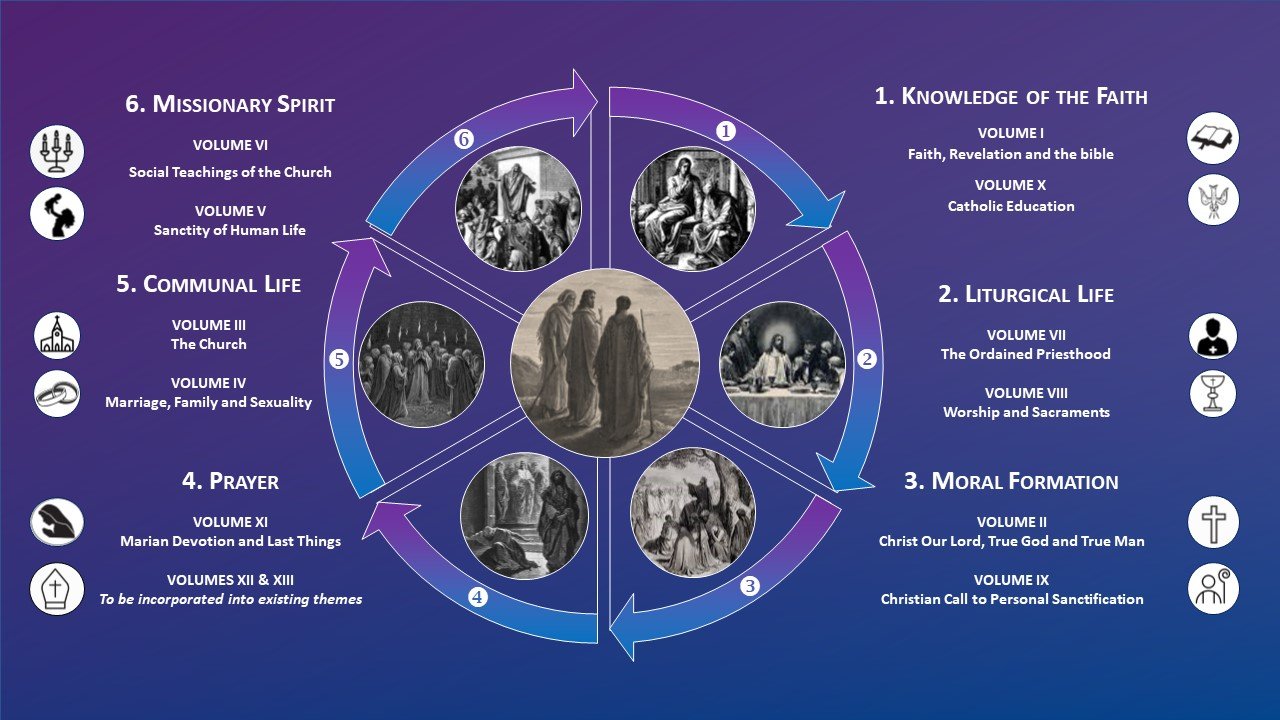
Table of Correspondences
The table following illustrates the correspondence between the six dimensions of the Christian life and the eleven Magisterium Summary topics.
The two columns on the right show the art of Gustaf Doré and the related Biblical passages.
Art is used to beautify and elevate and as a teaching mechanism to reinforce understanding of these principles. Classical art and traditional icons create an opportunity for reflection upon the more profound mysteries of the faith.
These ideas and ideals will be synthesized in a proposed volume entitled “The Magisterium Epistle: A Theology of Transformation.”
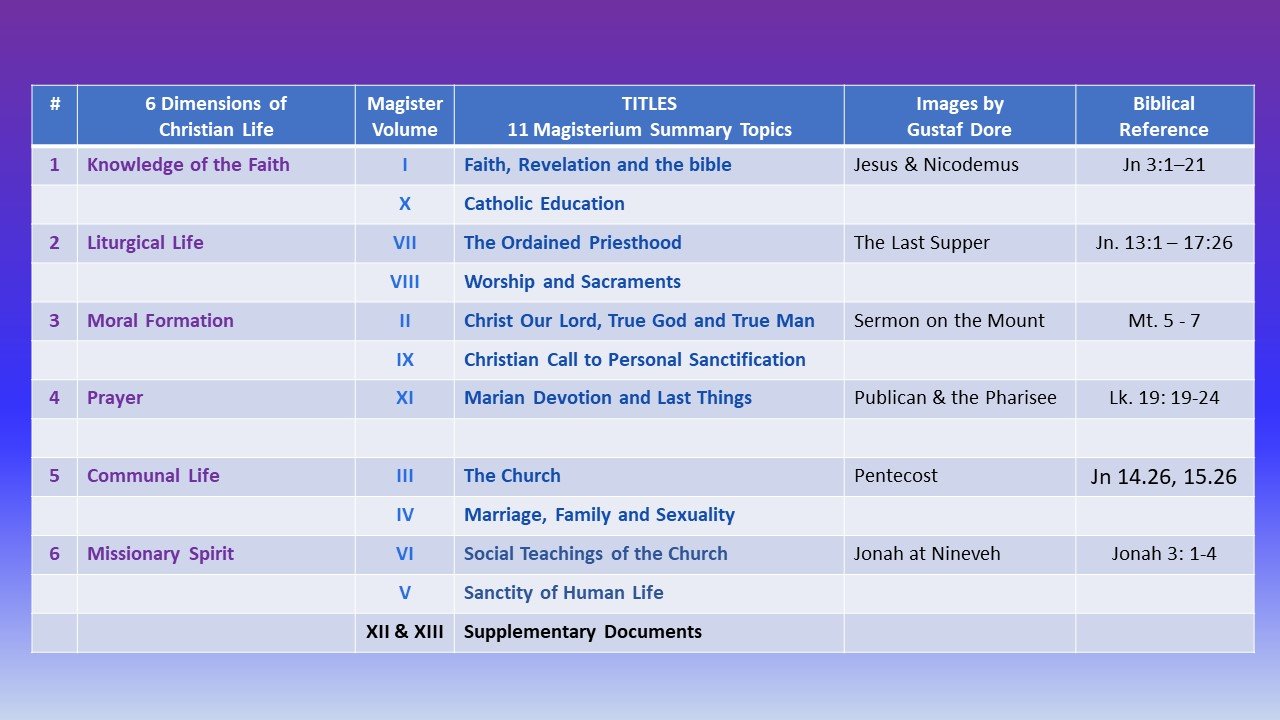
The Magisterium Epistle: Theology of Transformation
These ideas will be synthesized in a forthcoming volume incorporating the Pastoral Plan that complements the Magisterium Summary Series.
Why title the book as an “Epistle”? The epistle genre is a traditional form of essay that expressed formal didactic writing intended to instruct a person or group of people. The proposed volume is used in this sense.
It is also an acronym combining the six didactic principles of the pastoral plan plus a seventh principle. The overarching purpose of the eleven magisterial categories; is to effect a transformation of the heart.
As the editor and refounder of this series, the author believes that it is possible to experience a metanoia through a persistent, guided, and intentional approach to the Magisterium.
